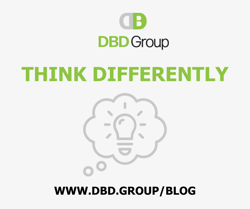One of my favorite DBD axioms is “Listen the gift.” We use this as we coach our clients through a major or transformational gift ask. Listening to our prospect is an important piece of the puzzle in creating a meaningful outcome for the donor and the organization.
After the disruption of the past four years, it seems a great time to pause and think differently – not just about the organization, changing demographics, AI, or the shifts in technology that are all affecting our fundraising, but about our donors. They are the heart of it all.
What are Donors Thinking Now?
Fortunately, two recent research studies provide some insights for us: the 2023 Giving Experience Study from OneCause and The Giving Environment: Understanding How Donors Make Giving Decisions from Indiana University Lilly Family School of Philanthropy.
Through them donors told us:
- Before they give, supporters want to know who they are giving to, and have confidence that their money is going to be put to good use.
- Being aware of an issue or the needs of an individual or organization strongly shaped giving decisions and motivated people to give in response to crises or perceived needs.
- Donors expressed a greater desire for nonprofit organizations to communicate the impact of programs and services and to be informed in more engaging and personal ways.
- Personal connections and a previous relationship with nonprofit organizations were important drivers of charitable giving.
- More influential factors that shaped donors’ giving decisions were personal values and previous experience with an issue.
- A lack of perceived awareness and donor education of a nonprofit organization’s programs and issues were reported as being responsible for lower rates of giving.
What Matters to Today's Donor?
To think like a donor today, we need to understand that donors prioritize consistency in their giving and selectivity in supporting organizations and causes that align with their values. They seek to maximize impact through their donations and are motivated by awareness of issues or needs, often responding to crises or perceived needs.
Donors are increasingly strategic in their giving, preferring to donate larger amounts to fewer organizations that demonstrate impactful work and with whom they have a personal connection or relationship.
Personal values, previous experiences with a cause, and personal relationships strongly influence donors' charitable giving decisions.
Additionally, donors appreciate clear and consistent communication from organizations regarding the impact of their gifts and value personalized donor engagement.
Therefore, make sure you highlight your mission, your history, current goals, and impact in all your communications. Ground your donors in your why, telling your better story, and tell it over and over across all your channels.
Take a journey through your giving experience as if you were one of your current or a prospective donors. Identify where you have friction along the way, identifying ways to streamline the experience for your contributors. Be transparent always and build trust, because it matters.
What changes in donor behavior have you noticed? Share in the comments below!
THIS MONTH'S FOCUS
Things are changing in the world of nonprofit leadership and nonprofit fundraising. New generations, new technology, new ways of communicating... these trends are challenging all of us to think differently. This month, join us as we explore the opportunities we have to try new things, explore new ways of engaging, and meet the challenges of the future.


